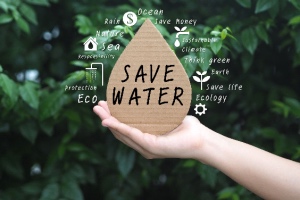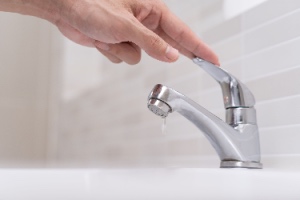
How to save water: Implement simple daily habits like fixing leaks and using efficient appliances to conserve this vital resource.
More...
With water conservation becoming increasingly necessary, even minor adjustments to our daily habits can bring substantial benefits.
There are countless opportunities to support this crucial initiative, whether by embracing energy-saving devices or carefully managing our water consumption.
You'll learn how fixing leaks and making simple adjustments can yield substantial savings.
By the end of this post, you will have actionable tips for conserving water and helping protect our planet for future generations.
How to Save Water Effectively at Home
Conserving water is crucial in today's world. Adopting innovative plumbing practices is one effective way to achieve this.
In this regard, implementing these strategies can dramatically reduce water usage in your household.
Addressing sweating pipes can prevent unnecessary water loss and improve efficiency.
For example, opting for low-flow showerheads and faucets can conserve numerous gallons of water each day.
Further, discovering methods to conserve water can include straightforward daily practices, such as turning off the faucet while brushing your teeth.
Moreover, regular maintenance checks can prevent leaks that often go unnoticed. Meanwhile, addressing sweating pipes can prevent unnecessary water loss and improve efficiency.
In addition, modern technology provides innovative water sensors that detect potential problems early, preventing them from escalating into expensive issues. These innovations are eco-friendly and save you money on utility bills.
Smart Water-Saving Tips
Saving water with intelligent plumbing practices benefits both the environment and your wallet. By implementing efficient techniques, you can significantly reduce water waste.
To illustrate, installing low-flow fixtures minimizes unnecessary water usage. Regular upkeep of plumbing systems averts leaks, conserving significant water in the long run.
On another note, modern technology like smart irrigation systems ensures optimal garden water distribution.
Smart irrigation systems tailor watering routines according to the weather, ensuring the best water usage and preventing overwatering.
Equally important, explore the option of purchasing eco-friendly washing machines and dishwashers designed to minimize water consumption with each use.
How to save water can be as simple as fixing a dripping faucet promptly.
A practical approach to saving water also includes educating household members about mindful consumption habits.
Innovative Plumbing Practices to Conserve Water
Incorporating innovative plumbing practices can significantly reduce your water usage. To begin with, consider upgrading to dual-flush toilets, which use less water for liquid waste.
Routine maintenance of your plumbing system is vital. Fixing leaks prevents unnecessary water loss. A tiny drip can waste gallons over time.
Also, insulate your pipes to avoid bursts during cold weather, ensuring efficient water flow year-round.
Another effective strategy is using water-efficient appliances. Modern dishwashers and washing machines consume less water while delivering excellent results.
Optimize Plumbing to Save Water and Money
Incorporate efficient plumbing methods to save water and reduce utility bills in modern homes.
First, regularly inspect pipes for leaks, which can lead to significant water loss.
Moreover, the utility company should install smart water meters that track usage in real-time, providing insights into daily consumption patterns.
Learning how to save water can contribute significantly to reducing overall household consumption.
In addition, rainwater harvesting systems for non-potable uses, such as irrigation and flushing toilets, should be considered.
How to Save Water With Smart Plumbing
Embracing plumbing systems offers numerous advantages for homeowners and the environment.
Firstly, these innovative technologies help save water with smart plumbing practices, reducing wastage significantly.
In addition, advanced sensors detect leaks early, preventing costly damages and conserving resources.
Furthermore, innovative fixtures optimize water usage by regulating flow rates and ensuring efficient distribution.
A significant advantage of merging these systems is the considerable reduction in utility expenses.
For instance, smart irrigation controllers adjust watering schedules based on weather conditions, preventing overwatering. This adjustment conserves water and maintains healthy landscapes.
Furthermore, advanced plumbing methods contribute to sustainability by reducing the demand for local water supplies.
Future Trends in Smart Plumbing Technology
Embracing high-tech plumbing innovations is essential for a sustainable future. By adopting innovative systems, homeowners can significantly reduce water usage.
One effective way to save water with effective plumbing strategies is by installing smart faucets and leak detectors.
For instance, smart faucets automatically adjust water flow, ensuring minimal wastage. How to save water is a crucial consideration in adopting these technologies.
Similarly, leak detectors alert homeowners to potential leaks, preventing extensive water damage and unnecessary consumption.
In parallel, greywater recycling systems reuse water from sinks and showers for irrigation.
These innovations reduce energy expenses and support the preservation of our environment.
Eco-Friendly Benefits of Saving Water
Implementing efficient plumbing habits can drastically reduce water waste, benefiting the planet and your finances.
By installing low-flow fixtures, you can save thousands of gallons annually. Equally important, efficient watering mechanisms ensure that your garden gets just the right amount of water, preventing overuse.
Another key point is that leak detection devices help identify and fix issues promptly, conserving water and reducing bills.
On top of that, integrating water-saving appliances such as dishwashers and washing machines can significantly impact efficiency.
Implementing these strategies conserves water and minimizes energy usage, decreasing utility expenses.

In the Final Analysis
Understanding how to save water is essential for both environmental sustainability and financial savings.
By embracing sustainable plumbing practices, like using water-efficient fixtures and routinely inspecting for leaks, you can significantly minimize water wastage in your household.
Similarly, investing in modern appliances that use less water per cycle and implementing innovative irrigation systems tailored to weather conditions can further enhance your conservation efforts.
Every drop is valuable, so incorporating simple habits such as shutting off the tap while brushing your teeth and promptly fixing leaks can significantly contribute to water preservation.
By adopting these approaches, you pave the way for a greener tomorrow and reap the rewards of reduced utility expenses.
Therefore, start implementing these tips today and make a positive impact on our planet's precious water resources.
